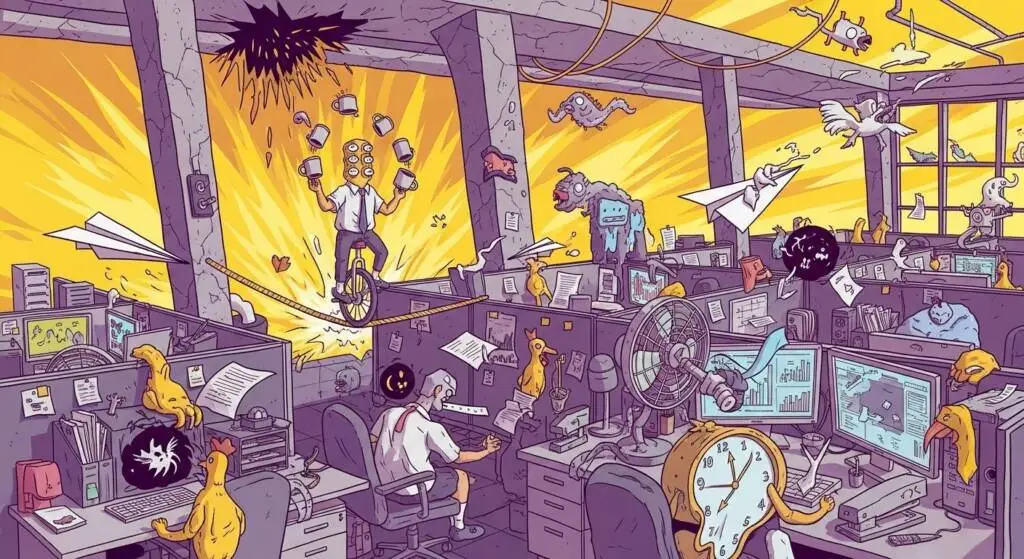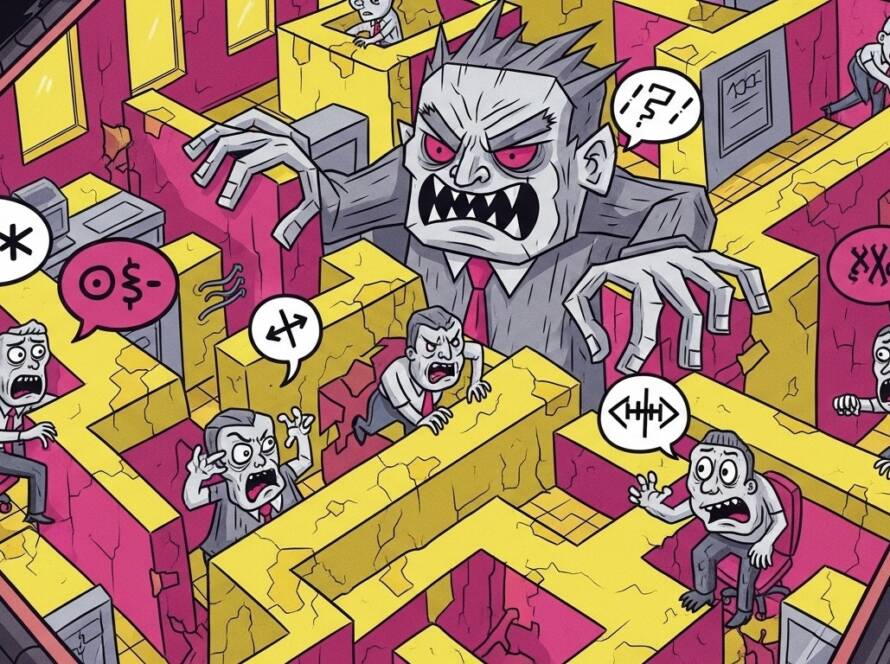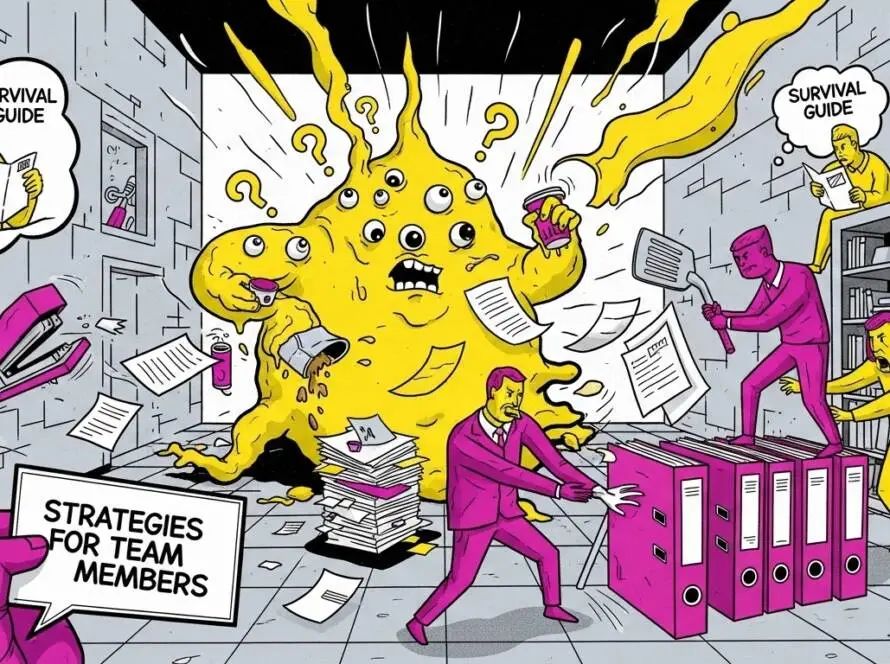They Quit: Micromanagement, Toxic Culture, Lack of Growth, Feeling Undervalued
People Don’t Quit Jobs. They Quit: Micromanagement, Toxic Culture, Lack of Growth, Feeling Undervalued.
The Impact of Micromanagement
Micromanagement can drive employees away. When managers constantly check in on every detail, it can feel suffocating. For example, if a manager insists on reviewing every email before it’s sent, the employee may feel they lack the freedom to make decisions. This can lead to frustration and a desire to leave for a job where they have more control.
- Loss of Trust: If employees feel their judgment is questioned, they may start to disengage.
- Decreased Motivation: An employee who is not trusted to handle their tasks may lose interest in their work.
- Increased Stress: Constant oversight can create a stressful environment, making employees dread coming to work.
Toxic Culture
A toxic workplace can make it hard for employees to stay. For instance, if the team manager consistently undermines the team, it creates a hostile atmosphere. When a manager frequently dismisses team members’ ideas or publicly criticizes their work, it can lead to a lack of confidence among employees. An example might be a manager who interrupts team members during meetings, making them feel their contributions are not valued. This can lead to employees feeling uncomfortable sharing ideas or collaborating, prompting them to seek a healthier work environment.
- Poor Communication: If team members don’t communicate openly, misunderstandings can arise, causing frustration.
- Lack of Support: An employee who feels isolated may struggle to perform well, especially if they don’t receive help when needed.
- High Turnover Rates: When employees see their colleagues leaving due to a toxic environment, they may decide to go as well.
Lack of Growth Opportunities
Employees want to grow in their careers. If a company doesn’t offer chances for advancement, employees may feel stuck. For example, if someone has been in the same role for years without receiving a promotion or new responsibilities, they may start looking for jobs that offer a more straightforward path for growth.
- Stagnation: An employee who feels they are not learning new skills may become bored and disengaged.
- Career Goals: If an employee’s aspirations don’t align with the company’s direction, they may feel unfulfilled.
- Skill Development: Companies that provide training and development opportunities often see higher retention rates because employees feel their growth is valued.
Feeling Undervalued
When employees feel undervalued, they are more likely to leave their organization. For instance, if an employee consistently puts in extra effort but never receives recognition, they may feel their hard work goes unnoticed. This can lead to resentment and a search for a job where their contributions are appreciated.
- Lack of Recognition: An employee who never receives praise for their work may feel their efforts are wasted.
- Inadequate Compensation: If employees believe they are not paid fairly for their contributions, they may look for better-paying opportunities.
- Emotional Disconnect: When employees feel undervalued, they may become less loyal to the company and more open to leaving.
Conclusion
Employees often leave their jobs not just because of the work itself, but also due to factors such as micromanagement, a toxic culture, a lack of growth opportunities, and feeling undervalued. By creating a workplace that encourages trust, support, and recognition, companies can help employees feel valued and motivated to stay.
Disclaimer:
The information provided in this blog is for informational purposes only and should not be considered professional advice. While we strive to provide accurate and up-to-date information, we make no guarantees about the completeness or reliability of the content. Any actions you take based on the information in this blog are at your own risk. Additionally, this blog may contain affiliate links, and we may earn a commission from purchases made through those links.




5 Comments
Vickie
Explore the tumultuous journey I faced during the Return-to-Office transition, which ultimately ended my 20-year career. Despite my consistent commitment, whether on-site or working remotely, my efforts went unrecognized. Dive into the chaos of this experience and the larger implications of corporate decisions shaped by billionaire interests. Please read my full story here, https://infostarbase.com/remote-work-story/.
Alice
Tech Billionaires Accused of Quietly Working to Implement “Corporate Dictatorship”. Read more at: https://www.yahoo.com/news/articles/tech-billionaires-accused-quietly-working-170409587.html
Alice
Remote Work or More Pay: What Tech Workers Value in One Chart by Zoe B. Cullen
Drawing from hundreds of real-world job offers, research finds that tech workers are willing to give up a quarter of their salary to avoid commuting.
Read more at: https://www.library.hbs.edu/working-knowledge/remote-work-or-more-pay-what-tech-workers-value-in-one-chart
Isabella
I completely agree! Micromanagement can significantly diminish employee morale and productivity. When people feel they aren’t trusted to do their jobs, it often leads to frustration and disengagement. Empowering employees and giving them the autonomy to make decisions not only boosts their confidence but also creates a more positive and productive work environment. Trust and collaboration are key to retaining talent!
Vickie
Thank you for sharing! Wishing you a wonderful New Year!